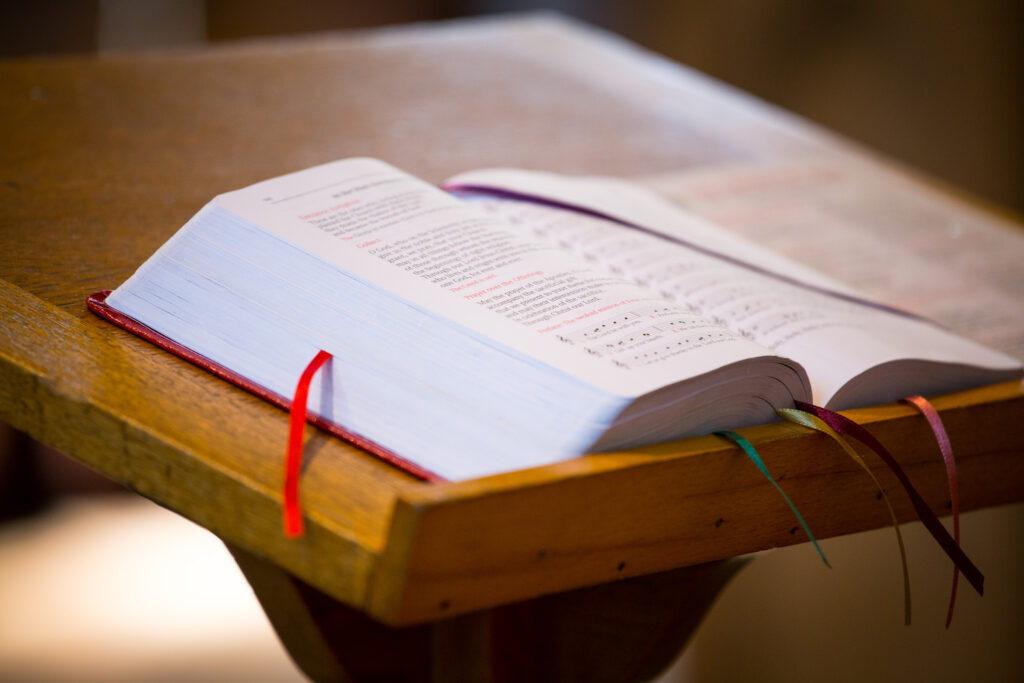Q. We have a new pastor who is a fine and holy man, but his preaching on Sunday rarely ever mentions the Scriptures that have just been proclaimed. He does catechetical series on things like understanding the parts of the Mass, the liturgical year, our patron saint — as well as other topics that might be interesting to people who are new to Catholicism but are uninspiring to us who learned these basic lessons years ago.
I thought that a homily was supposed to help us “break open the word of God.” Am I wrong that Vatican II asked that priests and deacons preach homilies and not sermons? I try to read a Sunday reflection before coming to Mass, but I feel cheated when beautiful Scriptures are brushed aside in favor of a catechism lesson. (City and state withheld)
Answer:
The reflection known as the homily is so integral to the celebration of the Mass that the Code of Canon Law requires that one be preached on Sundays and holy days of obligation and encourages it at every celebration of the Eucharist (No. 767).
I agree with you: The homily should regularly be based on the scriptural readings for that day’s Mass. That’s not just my idea, but it accords with the direction offered in official Church documents.
The General Instruction of the Roman Missal — the Church’s “guidebook” on the celebration of the liturgy — says that the homily “should be an explanation of some aspect of the readings from sacred Scripture or of another text from the Ordinary or Proper of the Mass of the day and should take into account both the mystery being celebrated and the particular needs of the listeners” (No. 65).
In 2012, the U.S. Conference of Catholic Bishops issued a document on the Sunday homily titled “Preaching the Mystery of Faith.”
In that document, in a section called “The Biblical Foundations for the Church’s Preaching Ministry,” the bishops noted: “This very integration of the homily into the texture of the liturgy warrants the use of the Lectionary readings as the basis for the homily.”
There might well be other opportunities for a catechetical series — perhaps a classroom setting after Mass — but that sort of “instruction” should not serve as a regular replacement for the homilist’s reflections on the word of God.
Question:
At my death, I would like to donate my body to the local medical school for their continued research and training of students. Is this allowed in the Catholic Church? (Kailua, Hawaii)
Answer:
Yes, it is allowed — but with certain cautions. The Catholic Church teaches that it is permissible and even laudable to donate one’s body to scientific research after death. The intent is to enable others to live longer if any viable organs can be used — or to provide the material for research that might prevent disease in the future.
In October 2014, Pope Francis met with the Transplantation Committee for the Council of Europe and called the act of organ donation “a testimony of love for our neighbor.” That same perspective is reflected in the U.S. Catholic bishops’ Ethical and Religious Directives for Catholic Health Care Services:
“Catholic health care institutions should encourage and provide the means whereby those who wish to do so may arrange for the donation of their organs and bodily tissue, for ethically legitimate purposes, so that they may be used for donation and research after death” (No. 63).
Medical students can learn from research on cadavers to become healers of other human bodies. One caution was expressed by St. John Paul II in a 1991 address to participants in a conference on organ transplants.
He said: “The body cannot be treated as a mere physical or biological entity, nor can its organs and tissues ever be used as items for sale or exchange.”
Another caution is that, at the conclusion of their use for research, bodily remains should be treated with respect and properly entombed or buried.
Question:
Were the apostles baptized? (Indianapolis)
Answer:
There is nothing in the Scriptures that describes the apostles having been baptized by Jesus — but of course the Gospels provide only the broad outlines of the public life of Christ and not every detail.
It would be safe to assume that Jesus did baptize the Twelve. Just before his ascension, Jesus makes it clear that baptism is a basic part of becoming his disciple; in the final words of Matthew’s Gospel, Jesus commissions the apostles to “go, therefore, and make disciples of all nations, baptizing them in the name of the Father, and of the Son, and of the Holy Spirit, teaching them to observe all that I have commanded you.”
In John’s Gospel (3:22), we read that, “after this, Jesus and his disciples went into the region of Judea, where he spent some time with them baptizing.”

